President Yoon Suk Yeol’s conservative People Power Party (PPP) suffered a major setback in South Korea’s parliamentary election held on April 10, 2024. Of the 300 seats in the National Assembly, the PPP secured only 108 seats through direct and proportional elections. Meanwhile, the major progressive opposition Democratic Party of Korea (DPK) and its satellite parties expanded its majority to 175 seats, hampering Yoon’s ability to govern for his remaining three years in office. Although the Yoon government’s domestic agenda may become further imperiled, his active foreign policy agenda will largely stay intact, including his staunch support for the U.S.-South Korea alliance and promotion of South Korea as a global pivotal state.
A referendum on President Yoon
South Korea’s midterm election was largely seen as a referendum on Yoon. Since coming to office in May 2022, Yoon’s domestic approval ratings have remained low, rarely breaking past 40 percent. Although support for the DPK and its party leader, Lee Jae-myung, has tracked equally as low, South Koreans were more likely to associate their country’s current economic woes, including inflation and high prices, with the ruling government.
A series of small, but unfortunate events and gaffes by Yoon during the election campaign may have also helped tip the scales in favor of opposition candidates in contested districts. In the months leading up to South Korea’s election, minor scandals surrounding the president’s wife and his former defense minister, an ongoing strike by the country’s medical doctors, and the president’s seemingly trivial comment about the price of green onions made him look out of touch.
Moreover, the rapid growth in support for a new progressive party founded by former Minister of Justice Cho Kuk just a month before the election attests to Yoon’s domestic unpopularity. Cho established the Rebuilding Korea Party (RKP) explicitly to challenge the Yoon administration, which he described as “dictatorial” and “anti-democratic.” Despite the former justice minister’s own corruption scandals and indictment, the RKP performed better than any other third party, winning 12 seats in the party-list proportional voting system.
Domestic political challenges
A divided government and ongoing political polarization will make it especially difficult for government and opposition leaders to make compromises and find bold solutions to pressing social and economic problems, such as high inflation, falling birth rates, and the lack of affordable housing.
Yoon will continue to face challenges in implementing his domestic priorities. During recent town hall meetings, the president unveiled several policy initiatives in hopes of attracting voters, including plans for new housing through urban redevelopment and new infrastructure projects. Just prior to the election, Yoon promised major investment in a new industrial complex for the development of semiconductors and artificial intelligence and pledged to relocate the National Assembly out of Seoul to the administrative city of Sejong in the middle of the country. However, his government will face obstacles in the National Assembly in financing such projects with progressives holding a commanding majority.
Greater continuity in foreign policy
The basic contours of Yoon’s foreign and national security policy, including support for the U.S.-South Korean alliance, deterring North Korea, and the U.S.-Japan-Korea trilateral, will persist. Relations with the United States will also remain positive given wide public support, even among progressives, for the U.S.-South Korea alliance.
Likewise, the South Korean public’s unfavorable views of China and broad recognition of Chinese coercive actions in the region have muted major criticism that Yoon has antagonized China. Despite the Yoon government’s close alignment with Washington, Seoul has also maintained space to engage Beijing diplomatically. Last week, the Yoon government announced Seoul would host a China-Japan-South Korea trilateral summit in late May.
Nevertheless, the DPK’s electoral gains will take some of the wind out of Yoon’s foreign policy sails. The DPK may complicate further South Korean rapprochement with Japan and demand that Yoon seek greater concessions from Tokyo to address historical grievances. This in turn may slow the pace of U.S.-Japan-Korea trilateral cooperation and the implementation of the deliverables announced during the Camp David trilateral summit in 2023, particularly those that call for greater military cooperation with Japan.
Opposition party members may also feel more emboldened to speak out against Yoon’s hostile approach to North Korea in contrast to the DPK’s desire for greater inter-Korea engagement. Yoon’s revised unification plan for the two Koreas, which incorporates principles of freedom and democracy, will likely be criticized by DPK members.
A lame duck?
The term “lame duck” has been repeatedly used to describe Yoon’s remaining time in office. However, Yoon’s predicament may not significantly diverge from his first two years in office since the DPK did not win a supermajority—over 200 seats—needed to overcome filibusters and override presidential vetoes. The election results are also unlikely to change the overall tenor of South Korea’s polarized politics, as the ruling and opposition parties continue to highlight scandals and pursue corruption charges against their political opponents. Although political momentum may shift to the DPK, the PPP will likely regroup in preparation for the next presidential election in 2027 as it did following even greater losses by the conservative party in the 2020 parliamentary elections.
For South Korea’s allies and partners, some concern may emerge regarding whether the Yoon government can sustain its activist foreign policy agenda, including support for Ukraine or increased attention to Taiwan and cross-Strait relations. Yoon, however, is unlikely to backtrack on the idea of South Korea becoming a global pivotal state, as foreign policy and national security issues are typically the prerogatives of the president in South Korean politics, and Yoon remains at the helm of Korea’s strong executive branch.
Seoul recently hosted the third Summit for Democracy in March, and in May will co-host the AI Safety Summit and the China-Japan-Korea trilateral summit. NATO is looking toward South Korea and other Asian countries for greater support on Ukraine. Although unlikely, a more inward-looking South Korea resulting from the president’s so-called “lame-duck” status would be a loss for the international community.
Beyond partisan politics, the DPK too has a stake in elevating South Korea’s global role. Although North Korea and Japan issues elicit starkly different responses from South Korean progressives and conservatives, in recent years, attitudes towards the U.S.-South Korea alliance and China have somewhat converged. The United States and its allies should therefore continue to work with Seoul, irrespective of the party in power, to promote regional security and global order.
-
Acknowledgements and disclosures
The author gratefully acknowledges Hanna Foreman and Claire Callahan for their editorial assistance and suggestions, as well as Adam Lammon for editing.
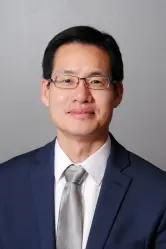
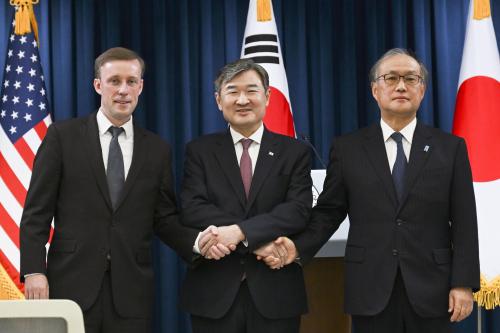
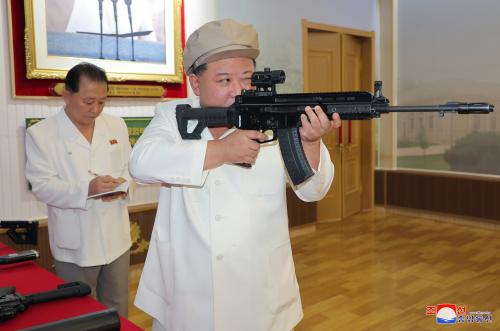
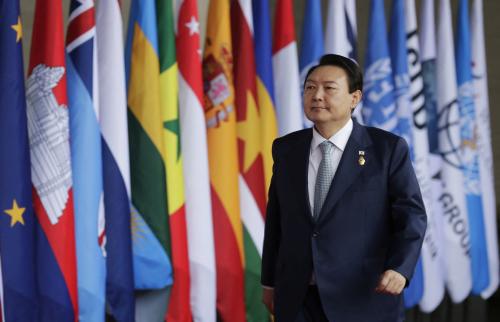
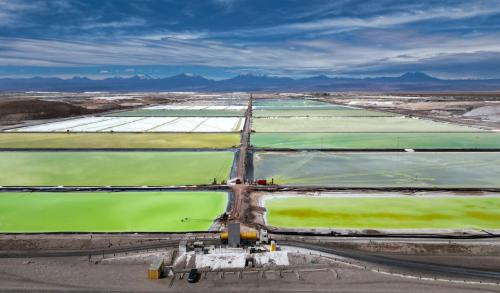
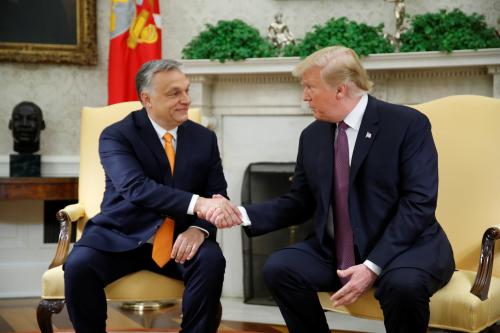
Commentary
Will South Korea change course following Yoon’s election loss?
April 17, 2024